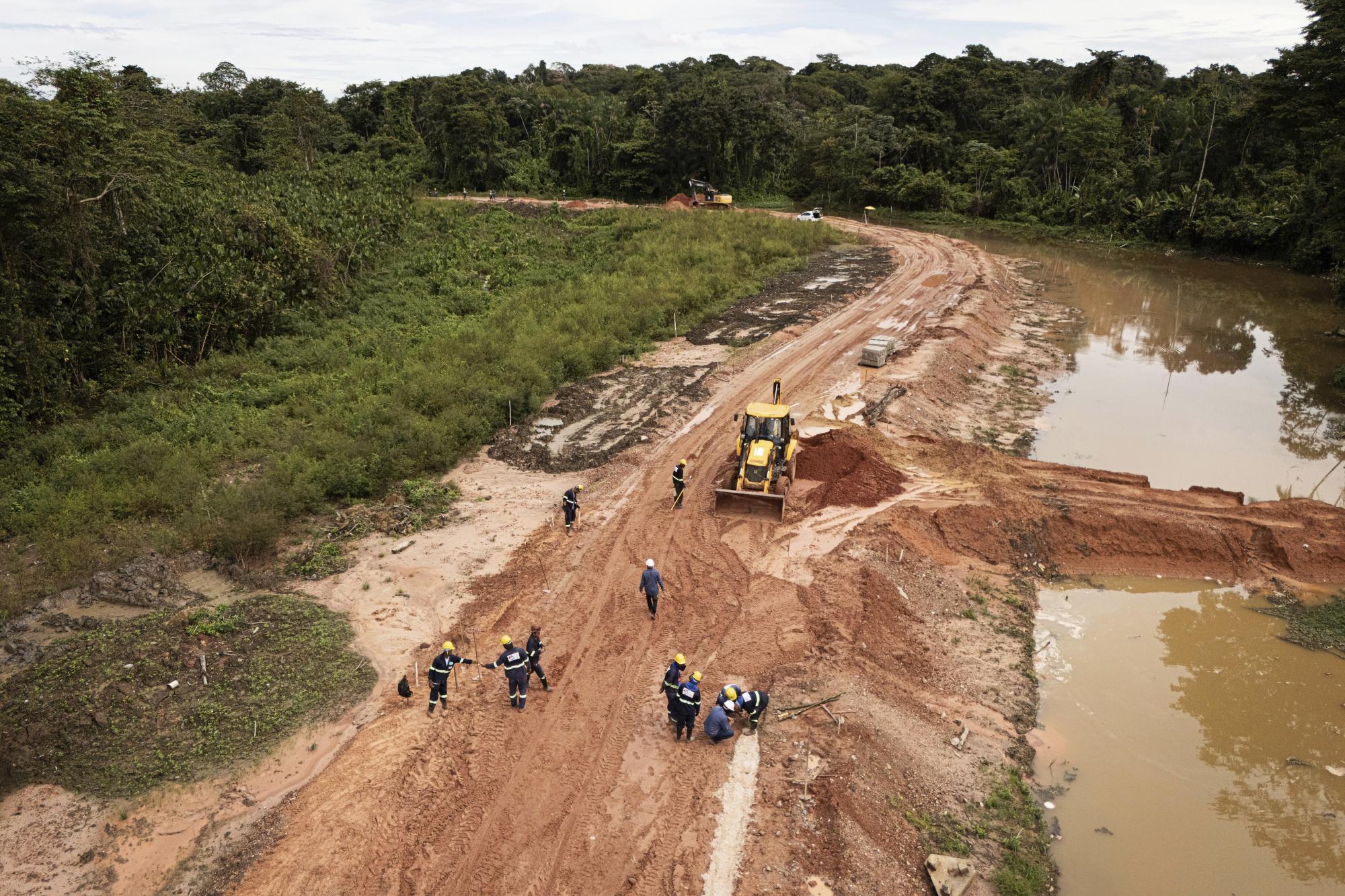The Brics economic bloc approved its first joint climate finance framework on Thursday, the group’s most coordinated effort to date on funding climate action and setting the stage for a shared position – a first for the group – ahead of Cop30 in Brazil.
The nonbinding framework – agreed during a high-level meeting on climate change and sustainable development – outlines Brics priorities including the reform of multilateral development banks, the scaling up of concessional finance and the mobilising of private capital to support climate efforts in the Global South.
The document will be submitted to Brics heads of state at their July meeting. Cop30, the 30th session of the Conference of the Parties, the latest United Nations climate change summit, is scheduled for November in Belem, Brazil.
“For the first time, there will be a document that guides a common and collective Brics action in the area of climate finance – involving, for example, reforms of multilateral banks, more concessional finance, and also the mobilisation of private capital and regulatory matters to ensure that flows can reach developing countries,” said Tatiana Rosito, the international affairs secretary at Brazil’s finance ministry.
In a statement, the Brazilian presidency said that the bloc’s latest climate effort reflected a shift from defensive posturing to proactive coordination in international negotiations.
Although this marks Brics’ first formal initiative as a negotiations bloc on climate finance, its core members – Brazil, Russia, India, China and South Africa – have coordinated informally for years.
Their climate diplomacy began through what was originally called the Basic group, which has worked jointly since the 1990s to defend the principle of “common but differentiated responsibilities” in global negotiations.
Brics’ climate ambitions intensified with the 2024 Kazan Declaration, which analysts described as the farthest-reaching statement the bloc has yet produced. It placed the Paris Agreement at the centre of its strategy, rejected unilateral trade measures taken under the guise of environmental policy, and linked sustainability to development and equity.
“The framework declaration on climate finance was approved at the vice-ministerial level and will be taken to the heads of state,” said Liliam Chagas, director of climate at Brazil’s Ministry of Foreign Affairs.
“Brics bringing its perspective as major developing countries of the Global South is very important and will help us with outcomes by the end of the year.”

The framework feeds into Brazil’s flagship goal for Cop30, called “Road Map Baku-Belem”, which aims to mobilise US$1.3 trillion in climate finance for developing countries by 2035.
While the Brics document will not be part of formal talks under the UN climate process, officials say it could help build consensus and overcome deadlocks.
“Financing is one of the central issues – at Cop29 and again for Cop30 – especially in the shape of the Road Map Baku-Belem,” Rosito said.
“Even if it is not a negotiation document, it can very well help to unlock negotiations and push climate action forward.”
Among the proposals is Brazil’s planned Tropical Forests Forever Fund, a financing mechanism developed during its Group of 20 presidency and expected to launch at Cop30.
It aims to attract private investment into forest conservation, offering returns instead of requesting direct contributions.
“This is an initiative that fits well as an innovative mechanism for private capital mobilisation,” Rosito said.
“With the financial model being designed, [we] could leverage resources four to five times over … and the countries that conserve their forests would receive funds for not deforesting.”
Beyond financing, the Brics meeting produced agreements to facilitate the use of climate-related patents, establish a joint platform for research and development and create a new Brics laboratory to assess how climate policies abroad might affect member economies.
“These countries will have a space to understand the impact of trade measures that might affect their exports,” Chagas said.
She added that a separate agreement on carbon accounting would let Brics countries better track emissions linked to specific goods and industries, helping them evaluate how environmental standards might influence trade flows, import-export dynamics and broader economic activity.




